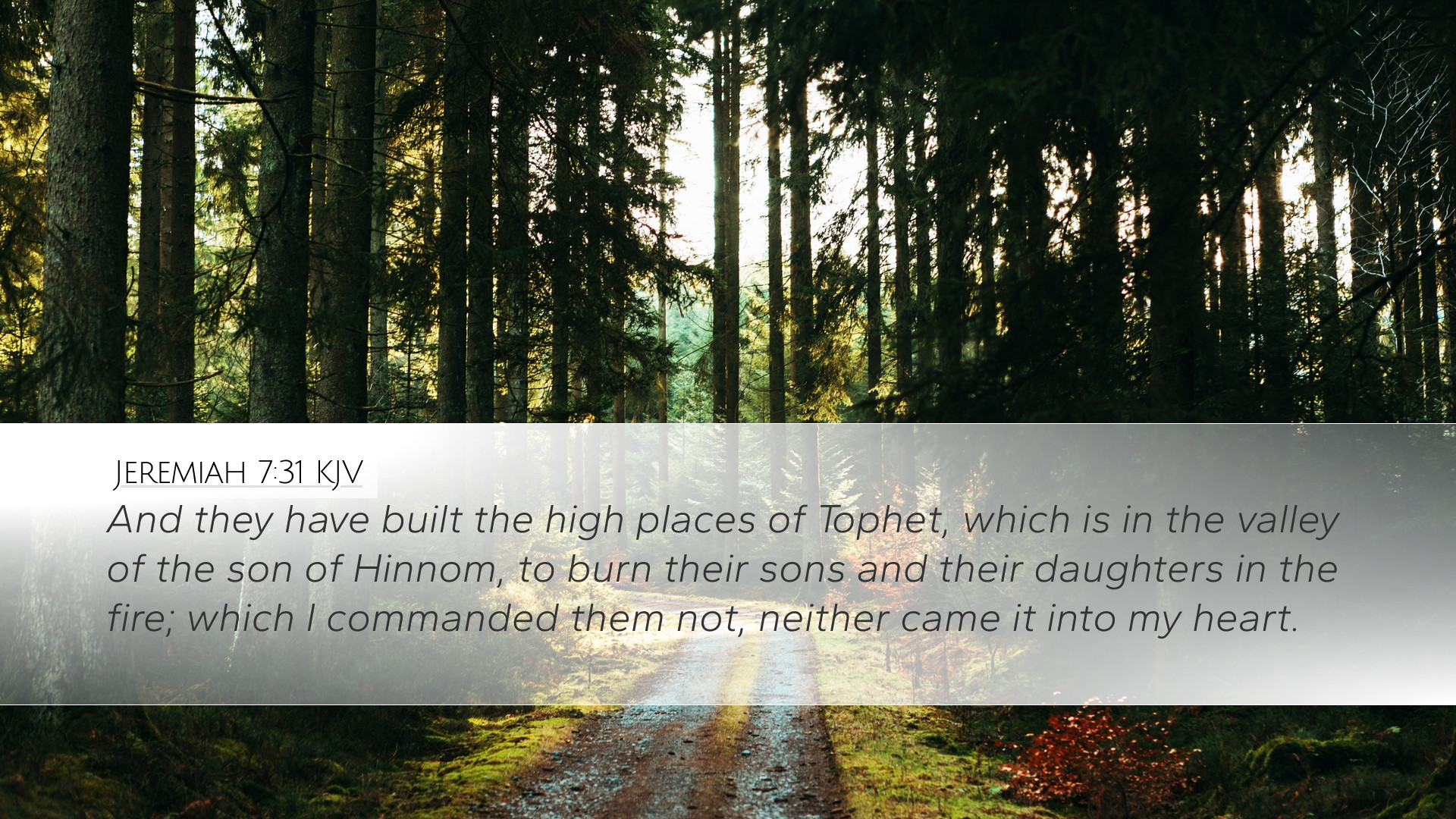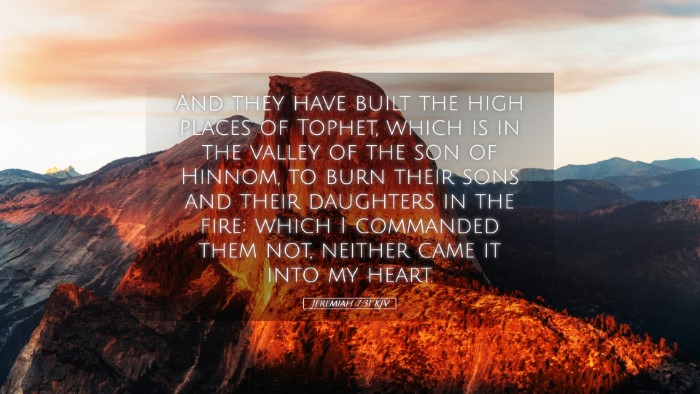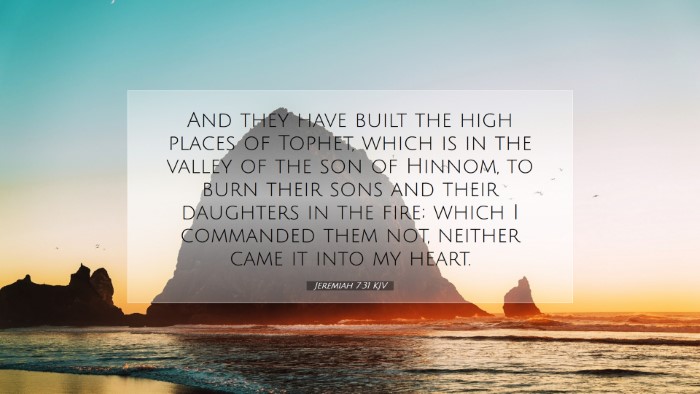Commentary on Jeremiah 7:31
Jeremiah 7:31 states:
“And they have built the high places of Tophet, which is in the valley of the son of Hinnom, to burn their sons and their daughters in the fire; which I commanded them not, neither came it into my heart.”
This verse encapsulates a profound moment of grief and condemnation within the prophetic ministry of Jeremiah. It reflects the severe deviations of the people of Judah from Yahweh’s covenant and highlights the depths of their idolatry and moral degradation.
Historical Context
During the time of Jeremiah, the nation of Judah was experiencing significant spiritual decline. The worship of Yahweh was being increasingly overshadowed by Baal worship and other forms of idolatry, which included horrific practices such as child sacrifice.
- Tophet: A location associated with these abominable acts, primarily known for the sacrifices made in honor of Molech, a Canaanite deity.
- Valley of the Son of Hinnom: Also known as Gehenna, this area was notorious for despicable rituals and became a symbol of ultimate condemnation in later Jewish literature.
This passage not only addresses the act of sacrifice but also emphasizes that such acts were never commanded by God and were contrary to His nature.
Commentary Insights
Matthew Henry's Commentary
Matthew Henry emphasizes the dreadful inhumanity of the people in offering their children as sacrifices. He articulates that this act represents the ultimate betrayal of parental duty and the violation of God’s commandments:
- Henry notes that such practices "neither came into God's heart," indicating that these actions were both vile and unimagined by the Lord Himself.
- He points out that God never intended for His people to engage in such horrific worship, stressing the abomination of their actions which leads to divine wrath.
Albert Barnes' Commentary
Albert Barnes expounds upon the significance of the high places built in Tophet, linking them to a broader discussion on apostasy. He describes the location as a “symbol of the most degraded form of worship,” indicating:
- These locations of worship were often constructed on elevated sites, believed to be nearer to the heavens, yet they were instruments of idolatry and moral decay.
- Barnes underscores the gravity of the phrase “which I commanded them not,” demonstrating God’s authority over true worship and His utter opposition to these sacrilegious acts.
Adam Clarke's Commentary
Adam Clarke delves into the social and ethical implications of such sacrifices, arguing that they stem from a profound desperation among the people:
- Clarke suggests that the sacrifices of children to Molech represent a society that had lost its moral compass and had succumbed to fear and superstition.
- He further clarifies that God, in His righteousness, had never commanded such actions, indicating that the heart of God is love and righteousness, in stark contrast to the actions of His people.
Theological Reflections
The verse presents essential theological principles including:
- The nature of God: He is a God of love who does not desire the suffering of the innocent.
- Human depravity: The depth of human sinfulness is displayed in the willingness to commit acts of violence against the most vulnerable.
- Divine justice: The inevitable consequence of such transgressions against God’s commandments will be judgment.
Applications for Today
The harsh realities presented in Jeremiah 7:31 are relevant for contemporary readers:
- Idolatry: While modern forms of idol worship may differ, the underlying issues of placing value on materialism or societal pressures over divine commitment persist.
- Child Welfare: Issues surrounding the protection and sanctity of life are paramount, paralleling the ancient practices denounced by God—calling for modern evangelicals to address current social injustices.
- Understanding God’s heart: Recognizing that God’s commands arise from His character—a God of love and justice—encourages believers to seek alignment with His will.
Conclusion
Jeremiah 7:31 serves as a sobering reminder of the dire consequences of turning away from God’s intended path. Both historical and contemporary interpretations underscore the need for repentance, the pursuit of righteousness, and the commitment to uphold the dignity of all lives as expressions of divine worship. In embracing the heart of God, believers are called to reject the cultural norms that lead to destruction, pursuing a life that reflects His love, mercy, and justice.


